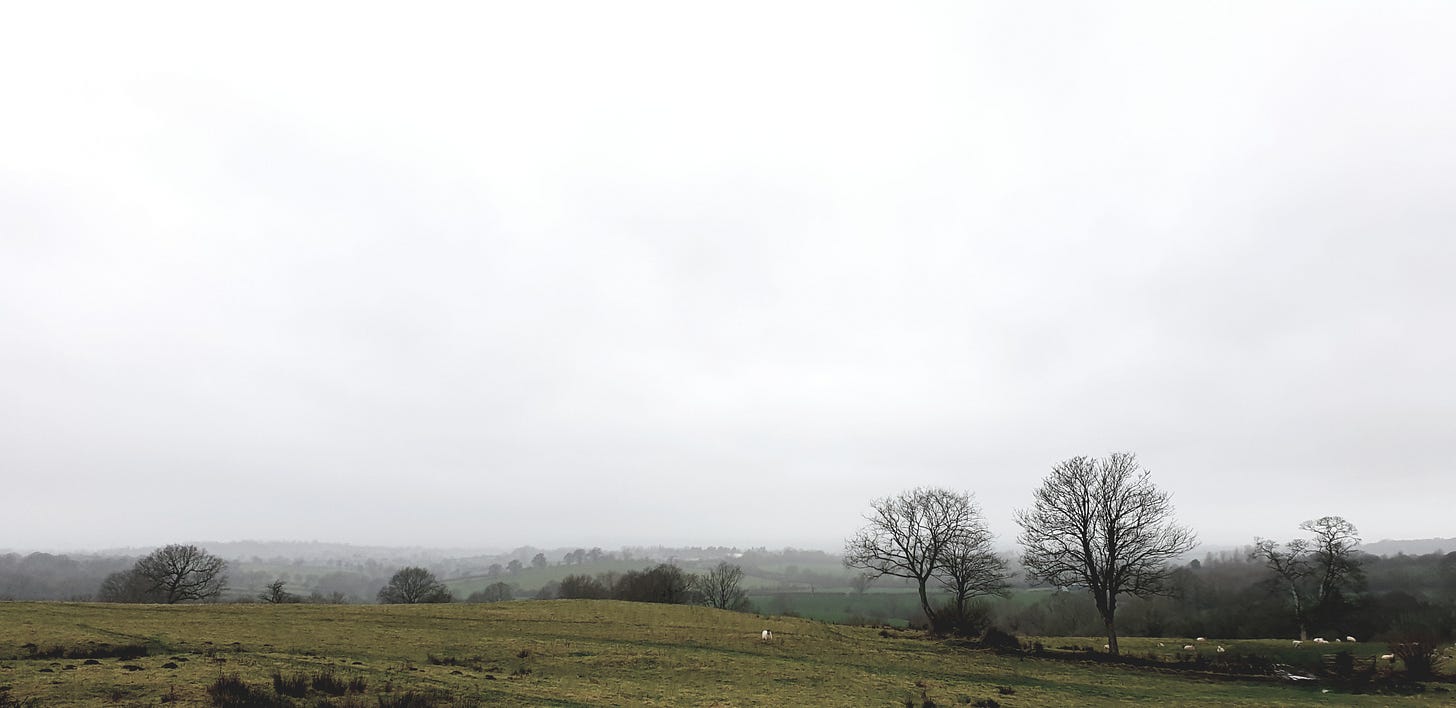"The Return of the 'Stack" Edition
Hello,
I hope you have had a wonderful Christmas, and I hope that 2022 will be a wonderful year for you and your loved ones.
Obligatory shilling. I wrote for The Critic about the tedium of literary remixing, Spectator World about the tedium of Gawker, UnHerd about British libel laws and my paying subscribers about Polish Christmases, hangovers and the truth.
Home front. I have been in England, visiting family. The picture above is from Gold Hill in Shaftesbury, an iconic rural scene and the location of many uphill races between my siblings and I. As I wrote in a Substack post last year:
Sentimentality misleads. In “An Arundel Tomb” Larkin observes that “time has transfigured” two effigies “into untruth.” Nostalgia does the same. One sees the cheering outlines of a memory, not the details.
But that does not mean the details are necessarily corrupt, banal or otherwise cause for cynicism. Richness can be added without beauty being diminished. I can look at a picture of Gold Hill as it flashes across my Twitter timeline and smile at its quaint English charm - and I can remember wheezing on the top, in bitter cold, with the bloody taste of triumph.
Nothing must be done. The COVID era has stumbled into the realms of comic tragedy. Omicron is exceptionally transmissible, the experts tell us, and I agree. This means, many continue, that we should be more vigilant about masking, social distancing et cetera. Excuse me? Masking makes even less difference than it did and social distancing means delaying the inevitable. Now, if someone with a weak immune system wants to delay the inevitable in order to ensure that healthcare systems will not be stretched when they are ill I understand entirely. But restricting our freedom serves only to soothe the psyches of COVID hawks. We should have no time for somethingmustbedoneism when, outside of the realms of vaccines and antivirals, nothing can be done.
Divorced from reality. A lot of discourse has surrounded this Atlantic essay by a writer who has got divorced because she thinks that marriage is holding her back from being a more interesting and unfettered version of herself. I am not going to judge her morally, not because I do not think divorce raises moral questions but because I have never been married. But I do think many people damage themselves and others with their belief in ideal inner selves waiting to escape. Most of us - and there exceptions, but they are significant for being exceptions - are not especially interesting when isolated from the people and places we know and love, just as a plant extracted from a beautiful landscape will look far less, not more, appealing.
Beneath the surface. Geoff Shullenberger assesses the life and thought of Peter Thiel:
Claims for the superiority of modern liberal capitalism were based on the promise of steady improvement of material well-being. People would stop fighting over religion and ideology, it was supposed, if they had access to an expanding pool of prosperity. Secular stagnation, then, is a crisis not because it portends declining standards of living, but because it has caused many to lose faith in material progress—and to turn back to archaic competition for a sense of validation.
1997. Ed West reflects on Blair, Diana, Harry Potter and the year that changed Great Britain:
Again the whole thing left me feeling totally empty, if anything a bit wary of how insane my countrymen were, as if the KGB had spiked the water supply with acid as part of some weird Cold War PsyOp…
The anarch. Aris Roussinos considers the later work of Ernst Jünger:
Flirting with the French and German resistance movements just as he served the regime he despised, Jünger lived his concept of the “anarch”, the internal exile who conforms outwardly to the spirit of the times while fostering his own inward, secret rebellion. As Cocteau later quipped, “Some people had dirty hands, some had clean hands, but Jünger had no hands.”
Men of the now. Stone Age Herbalist writes in praise of the Dionysian dissident:
Figures like the Ghost of Christmas Present, Falstaff, Dionysus, Bacchus, Little John, Father Christmas; these often present an archetypal character of a man totally absorbed only in the present. His actions, his intentions, his thoughts, such as they are, are directed towards an immediate goal with little reflection.
Such men cannot sustain civilisation alone. But they are needed to animate it!
The cause of and solution to all of life’s problems. John Tierney reviews a new book written in praise of alcohol:
In Drunk, a witty and erudite homage to alcohol, Slingerland offers a novel explanation to an old evolutionary puzzle: Why do we keep drinking? “Humans are the only species that deliberately, systematically, and regularly gets drunk,” he writes.
I’ll drink to that.
Have a lovely week,
Ben




